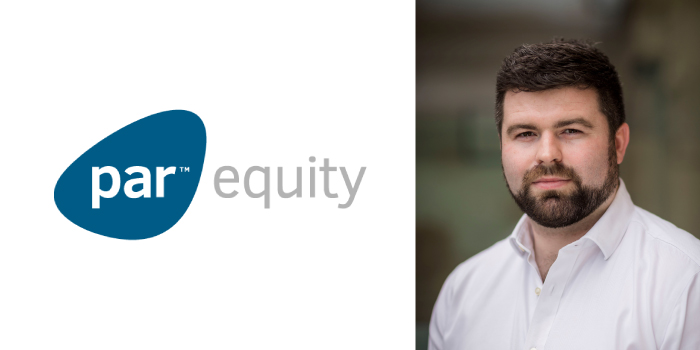An Investor Perspective: Amplifi Solutions speaks to Par Equity
Jamie Watts, Commercial Director at Amplifi Solutions, an entrepreneurial tax incentives specialist, speaks to Aiden MacMillian, Investment Director at Par Equity.
It’s been a challenging time to raise new investment for early-stage businesses over the last year. What have been the key characteristics that you’ve seen which have led you to invest?
It’s definitely been a challenging market, but we’re still investing in new and existing ventures, and our pipeline is robust. What’s perhaps been more challenging is finding later stage investors to support our portfolio, although 3 London-based institutional investors have just co-invested into two of our portfolio companies. Additionally, mounting investor wariness and tougher due diligence requirements means deals are taking longer to complete.
The good news for us is that being an investor in Scotland, Northern England, and Northern Ireland, regions that are not traditionally oversupplied with capital, we’ve been less impacted compared to more capital abundant areas. We are still looking for companies with strong, experienced teams, innovative tech or business models, and large global markets.
What has become a red flag for you when considering a new investment?
We like to build strong relationships with founders and management teams throughout their growth journey. Therefore, any inkling of incentive misalignment or a lack of trust fundamentally raises a red flag for us.
We highly value companies that are open, honest, and transparent about their challenges, skills gaps, and are realistic about their ability to hit targets and meet their pipelines. We also appreciate their receptiveness to feedback and willingness to collaborate with us in addressing any potential issues.
We consider our investments in early-stage companies to be the start of a new partnership and journey with the founders and companies that we back. A partnership without respect and trust is always doomed to fail.
How can a business differentiate itself from similar potential investments?
At Par Equity, there are three ways a company can stand out to us:
- Team: a strong, well-formed team across key functional roles and with situational experience (founders, executives and boards that have been there and done it before and can help navigate the peaks and troughs of the market)
- Ground-breaking technology or business model: driving real innovation into their chosen market(s)
- Large global market: having ambitions to build large companies from the North of the UK.
As early-stage investors, we’re comfortable backing companies early on, ready to guide them through further stages.
How do you see the next 3-5 year cycle playing out from a Par perspective?
We’re excited about the next 3–5 years and beyond. We’ve successfully achieved the initial closing of our first institutional venture fund, Par Equity Ventures I LP, a £100m fund that will invest £3-5m in rounds of up to £20m at Series A and beyond. In conjunction with our ongoing investments, we anticipate many opportunities to support remarkable Northern founders and their enterprises. Contrary to gloomy macroeconomic forecasts you see in the media, we believe the 2023, 2024, and 2025 investments will excel.
There was a large amount of ill-discipline creeping into the market post-covid, with historically low interest rates, fostering a cheap money mentality and careless acts. Competition for investment opportunities and FOMO led to increased round sizes and inflated valuations. A lack of due diligence, resulted in many companies being funded, that quite honestly, shouldn’t have been. The availability of this cheap capital allowed many companies to pursue reckless growth strategies, which are now being dialled back.
However, now with interest rates of 5.25% in the UK and 5.5% in the US, there is less capital flowing into the market, requiring fund managers and companies to be more disciplined and efficient. Just as good discipline led to sustainable businesses following 2008, we’re confident the next few years will foster more sustainable opportunities.



